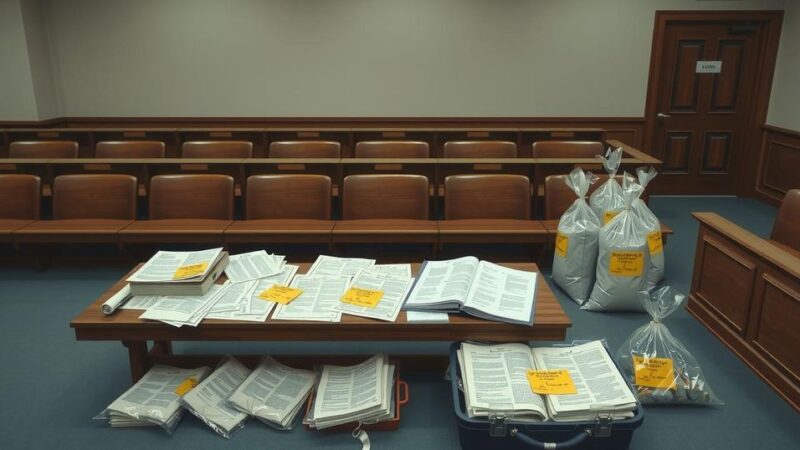A Thai delegation is visiting Xinjiang, China, to meet with a few Uyghurs deported last month. The deportation faced international criticism and resulted in visa sanctions from the U.S. and condemnation from the European Parliament. Only five out of 40 deported Uyghurs will be met during this visit. Thailand ensures it received assurances from China regarding the Uyghurs’ treatment.
A Thai delegation, including cabinet ministers, is visiting the Xinjiang region of China to meet with some of the Uyghurs deported last month. However, the government has informed that only five out of the forty individuals deported will be available for this meeting. This deportation on February 27 was criticized by UN human rights experts and resulted in visa sanctions against unnamed Thai officials from the United States.
The European Parliament also condemned Thailand’s actions, urging the European Union to utilize free trade negotiations to avert similar scenarios in the future. Rights organizations highlight the severe human rights violations faced by the Uyghurs, while Beijing firmly denies such accusations and claims that the West is spreading misinformation.
The delegation, led by Deputy Prime Minister Phumtham Wechachai, is traveling to Kashi in Xinjiang and includes senior military officials and members of the media. Government spokesperson Jirayu Houngsub stated that the group would receive a briefing from a Xinjiang representative before visiting the Uyghurs. They plan to return to Thailand on Thursday, having assured that the deported individuals would be well cared for.
Phumtham indicated the expectation of meeting just five of the deported Uyghurs and one individual from a previous group sent back in 2014. This group includes individuals who fled China and were arrested in Thailand, with varying outcomes — some were deported to China while others went to Turkey. Jirayu remarked that the visit aims to clarify Thailand’s intentions, denying any hidden agendas or the deportation of refugees.
In Beijing, foreign ministry spokesperson Mao Ning referred to the Thai delegation’s visit as “part of normal friendly exchanges” between the two nations. Notably, Canada and the United States had previously expressed willingness to resettle the deported Uyghurs, though Thailand is apprehensive about jeopardizing its relations with China over this matter. A Thai foreign affairs official emphasized that the deportation aligned with Thailand’s national interests, considering the potential backlash from Beijing if the Uyghurs were sent elsewhere.
In summary, the Thai delegation’s visit to China aims to engage with a select group of deported Uyghurs following a controversial deportation that has drawn international criticism. The trip reflects Thailand’s diplomatic balancing act, ensuring relations with China while facing scrutiny from human rights advocates and western nations. As this situation unfolds, Thailand remains cautious of international repercussions while maintaining its stance on the treatment of the Uyghurs under Chinese authority.
Original Source: www.bangkokpost.com






